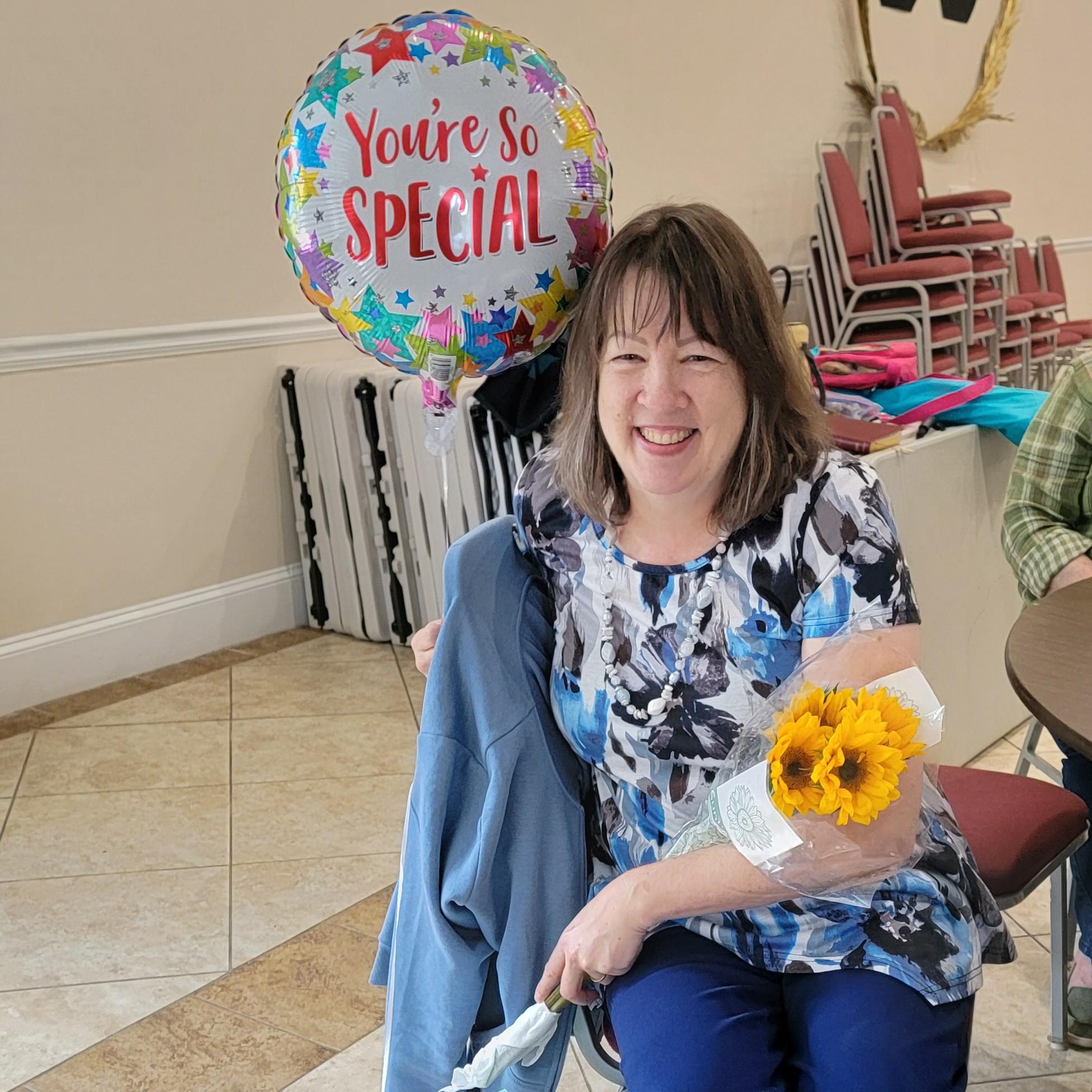Shepherds Arise

“Shepherds Arise” – November 2nd, 2025
There was a vain elf named Rory
Who wanted to hog all the glory
He claimed with much noise
That he made all the toys
But we know that wasn’t the story
Not every Christmas poem tells the real story of Christmas. But many Christmas carols do attempt to illuminate some part of the greatest story ever told, the story of Jesus Christ! And that is why today we are starting our second annual sermon series, Carols of Christmas! We will be exploring six Christmas carols this year, and you won’t want to miss any of these. As always there are three ways to participate: come in person, partcipate via Zoom, or listen in later on the church website. If you join us either in the room or on Zoom, you also have the opportunity play Christmas Carol Bingo each Sunday from now until the end of the year!
Today’s Christmas carol, Shepherds Arise, came to us at least a century ago from Dorset, a ceremonial county in South West England. That’s pretty much all we know about the origin of this carol which might be new to many of us on this side of the Atlantic. Later on we are going to sing this Christmas carol together. But for now, listen to the words:
Shepherds arise, be not afraid. With hasty steps, repair to David’s city. Sing, all earth with our blest infant there. Sing, sing, all earth, eternal praises sing to our Redeemer and our heavenly King.
Laid in a manger, view the Child, humility Divine. Sweet innocence, how meek and mild. Grace in his features shine. Sing, sing, all earth, eternal praises sing to our Redeemer and our heavenly King.
For us, the Savior came on earth. For us, his life he gave to save us from eternal death and to raise us from the grave. Sing, sing, all earth, eternal praises sing to our Redeemer and our heavenly King.
The repeated chorus with its call to all the earth to sing praises to our redeemer and king immediately bring to mind two prophetic passages written hundreds of years before Jesus was born.
The first prophetic passage is Psalm 96:1-13 – “O sing to the Lord a new song; sing to the Lord, all the earth. Sing to the Lord, bless his name; tell of his salvation from day to day. Declare his glory among the nations, his marvelous works among all the peoples. For great is the Lord, and greatly to be praised; he is to be revered above all gods. For all the gods of the peoples are idols, but the Lord made the heavens. Honor and majesty are before him; strength and beauty are in his sanctuary. Ascribe to the Lord, O families of the peoples, ascribe to the Lord glory and strength. Ascribe to the Lord the glory due his name; bring an offering, and come into his courts. Worship the Lord in holy splendor; tremble before him, all the earth. Say among the nations, ‘The Lord is king! The world is firmly established; it shall never be moved. He will judge the peoples with equity.’ Let the heavens be glad, and let the earth rejoice; let the sea roar, and all that fills it; let the field exult, and everything in it. Then shall all the trees of the forest sing for joy before the Lord; for he is coming, for he is coming to judge the earth. He will judge the world with righteousness, and the peoples with his truth.”
The second prophetic passage is Isaiah 44:22-24 – “I have swept away your transgressions like a cloud, and your sins like mist; return to me, for I have redeemed you. Sing, O heavens, for the Lord has done it; shout, O depths of the earth; break forth into singing, O mountains, O forest, and every tree in it! For the Lord has redeemed Jacob, and will be glorified in Israel. Thus says the Lord, your Redeemer, who formed you in the womb: I am the Lord, who made all things, who alone stretched out the heavens, who by myself spread out the earth.”
Let’s turn now to Luke’s nativity narrative in chapter two of his gospel.
Luke 2:1-7 – “In those days a decree went out from Emperor Augustus that all the world should be registered. This was the first registration and was taken while Quirinius was governor of Syria. All went to their own towns to be registered. Joseph also went from the town of Nazareth in Galilee to Judea, to the city of David called Bethlehem, because he was descended from the house and family of David. He went to be registered with Mary, to whom he was engaged and who was expecting a child. While they were there, the time came for her to deliver her child. And she gave birth to her firstborn son and wrapped him in bands of cloth, and laid him in a manger, because there was no place for them in the inn.”
I want to pause here and invite us to pay close attention to the words an angel is about to speak to some shepherds, in Luke 2:8-12 – “In that region there were shepherds living in the fields, keeping watch over their flock by night. Then an angel of the Lord stood before them, and the glory of the Lord shone around them, and they were terrified. But the angel said to them, ‘Do not be afraid; for see—I am bringing you good news of great joy for all the people: to you is born this day in the city of David a Savior, who is the Messiah, the Lord. This will be a sign for you: you will find a child wrapped in bands of cloth and lying in a manger.’”
Imagine going about your ordinary routine when suddenly an angel of the Lord stands before you. Imagine the normal night sky being suddenly lit up when the glory of the Lord shone around you. This is what the shepherds experienced. And then the angel speaks. There is a lot to unpack the angel’s words, just 37 words in the original Greek. One thing is for sure – the angel has just delivered some very important and joy-filled good news to these shepherds. A baby has been born, a Savior, the Messiah, the Lord. Later we realize that this baby is Jesus Christ and that he is some kind of king. The angel provides the general location and some very specific details. Here’s where things get interesting. We might have expected the angel to then say, “go and look for this baby.” But that’s not what the angel says.
The angel simply assures them that they will find. This is where the angel’s words intersect with today’s Christmas carol. Through the messenger angel’s words, “you will find,” God is calling the shepherds into action. “You will find” is both an assurance and an invitation. God has spoken. And now they are invited to bring their skills, expertise, creativity, personality, into what happens next. God said, “you will find.” And now they get to figure out how they will go about finding. When God said, “you will find,” what they heard was, “shepherds, arise!” “You will find” imparted both assurance and invitation. The shepherds received confidence, courage, instructions, and a wide-open space in which to respond to God’s call.
The shepherds were assured and invited by the angel’s words, “you will find.” They heard God call them into action – “shepherds, arise!” – and so they arose. Why? So that they could seek the infant of whom the angel spoke: the Savior, the Messiah, the Lord.
Luke 2:13-15 – “And suddenly there was with the angel a multitude of the heavenly host, praising God and saying, ‘Glory to God in the highest heaven, and on earth peace among those whom he favors!’ When the angels had left them and gone into heaven, the shepherds said to one another, ‘Let us go now to Bethlehem and see this thing that has taken place, which the Lord has made known to us.’”
The shepherds heard God, through the angel, speak to them “good news of great joy for all the people.” Now they see and hear with the angel a multitude of the heavenly host praising God! The shepherds were given good news of great joy for all people. And they showed that they received this good news: they got moving. They gathered up all of their confidence, courage, instructions, and a wide-open space in which to respond to God’s call.
Luke 2:16 – “So they went with haste and found Mary and Joseph, and the child lying in the manger.”
As is so often the case, we lose some of the original language in translation. We are told that the shepherds “went with haste.” It’s not their physical speed that is significant here. The original Greek, ēlthan speusantes, refers to eagerly awaiting with diligence and earnestness. “With haste” describes how the shepherds went about seeking. They sought with eagerness, with expectation, with diligence, and with earnestness that which the angel assured them they would find!
And what did they do when they found the child who had been born?
Luke 2:17-20 – “When they saw this, they made known what had been told them about this child; and all who heard it were amazed at what the shepherds told them. But Mary treasured all these words and pondered them in her heart. The shepherds returned, glorifying and praising God for all they had heard and seen, as it had been told them.”
The angel brought the shepherds good news of great joy. They received that good news. They had been told that this good news was for all the people. So now they did their part in making this good news known! Two significant things happened as a result of their telling of this good news. Firstly, all who heard it were amazed! And, just as significantly, the shepherds themselves were transformed! They were no longer simply shepherds living in the fields, keeping watch over their flock by night. They had heard God’s voice. Truly hearing God’s voice is not a passive act but an active, transformative process where we are changed to become more like God. The shepherds had received good news of great joy. They could not unsee what they had seen or unhear what they had heard. The transformed shepherds actually became the first witnesses of the newborn Savior, Messiah, Lord, King, Jesus Christ. They made this good news known. And now they glorified and praised God. Their lives would never be the same!
Creator God created us in God’s image. I don’t think we will ever be able to fully understand everything about what that means. But we do know that God gave us bodies that can do things and minds that can think. God created us to be able to learn, discover, understand, and solve problems. God created us to be able to experiment, evaluate possible answers or solutions, to do trial and error. God created an orderly universe, in which the cosmos operates under a set of consistent, understandable laws and principles. This is why we can do scientific inquiry, experimentation, and so forth. God includes us in God’s good work on the earth, such that we actually become part of the good news, if we say yes to God’s invitation. God does not speak to us so that we can act only as heralds who merely announce information. God speaks to us and invites us to get involved as a partner with God in both the magnificence and the messiness of life, to bring about kingdom transformation. This is an important principle in the kingdom of God.
The root word for “you will find” in the original Greek, heuriskó, is where we get our word, heuristic. Heuristic is an adjective describing an approach to problem solving, “encouraging a person to learn, discover, understand, or solve problems independently, as by experimenting, evaluating possible answers or solutions, or by trial and error.” This is so exciting! We are not automatons who mechanically follow a predetermined set of instructions. How tragic it would be to view God’s will as some kind of fixed pathway. There’s no way that any of us, imperfect and limited as we are, could follow any pathway perfectly throughout the course of our lives. We would be doomed to fail!
Listen to this 2003 article from satire website Lark News:
Man, 91, dies waiting for will of God
TUPELO — Walter Houston, described by family members as a devoted Christian, died Monday after waiting 70 years for God to give him clear direction about what to do with his life.
“He hung around the house and prayed a lot, but just never got that confirmation,” his wife Ruby said. “Sometimes he thought he heard God’s voice, but then he wouldn’t be sure, and he’d start the process all over again.”
Houston, she says, never really figured out what his life was about, but felt content to pray continuously about what he might do for the Lord. Whenever he was about to take action, he would pull back “because he didn’t want to disappoint God or go against him in any way,” Ruby says. “He was very sensitive to always remain in God’s will. That was primary to him.”
Friends say they liked Walter though he seemed not to capitalize on his talents.
“Walter had a number of skills he never got around to using,” says longtime friend Timothy Burns. “He worked very well with wood and had a storyteller side to him, too. I always told him, ‘Take a risk. Try something new if you’re not happy,’ but he was too afraid of letting the Lord down.”
Think about the shepherds that night. Imagine what would have happened, and, more to the point, what would not have happened if they had taken Walter Houston’s approach.
We are going to pause now to sing this Christmas carol, Shepherds Arise.
Just as God spoke to the shepherds then, God continues to speak to us today. God entrusts us with really important things like showing and telling the good news of the kingdom of God. But in considering how we do that, remember that we are not robots programmed with inflexible instructions. We are each God’s beloved children who are given inclusive invitations. God created each of us with minds to think and talents to develop and hearts to love. When God speaks, God also imparts to us assurances and invitations. God gives us confidence, courage, instructions, and a wide-open space in which to respond to God’s call. And then, God calls us into action. Always. And in all ways. All the parts of us. Love is not just a feeling. Love acts. We are called us to give our total allegiance to the Lord God, who is Jesus, our Savior, our Messiah, our King. And Jesus tells us how we are to give total allegiance to our Lord, Savior, Messiah, King Jesus.
I really love how Eugene Peterson rendered what Jesus said in response to a question from a religion scholar, “Which is most important of all the commandments?” Jesus begins his response by directly quoting the traditional Jewish declaration of faith known as The Shema, from Deuteronomy 4:6. Listen to The Message interpretation of Mark 12:29-31 – “The first in importance is, ‘Listen, Israel: The Lord your God is one; so love the Lord God with all your passion and prayer and intelligence and energy.’ And here is the second: ‘Love others as well as you love yourself.’ There is no other commandment that ranks with these.”
To take Jesus’ words seriously is to consider each of these ways in which Jesus told us to love and to put that love into action. What would it look like for me, for you, for us, to love God with all of our passion, with all of our heart? What would it look like for me, for you, for us, to love God with all of our prayer, with all of our soul? What would it look like for me, for you, for us, to love God with all of our intelligence, with all of our mind? What would it look like for me, for you, for us, to love God with all of our energy, with all of our strength? Jesus’ second statement sheds light on this: It looks like loving others as well as we love ourselves. Loving God and people looks like what God spoke through Moses way back in Deuteronomy 10:17-19 (The Message) – “God, your God, is the God of all gods, he’s the Master of all masters, a God immense and powerful and awesome. He doesn’t play favorites, takes no bribes, makes sure orphans and widows are treated fairly, takes loving care of foreigners by seeing that they get food and clothing. You must treat foreigners with the same loving care.” Loving God and people looks like what James 1:27 (The Message) describes as reaching “out to the homeless and loveless in their plight.” Loving God and people looks like what Jesus described in Matthew 25:35-36 (The Message) – “I was hungry and you fed me, I was thirsty and you gave me a drink, I was homeless and you gave me a room, I was shivering and you gave me clothes, I was sick and you stopped to visit, I was in prison and you came to me.” Loving God and people looks like loving neighbors and nations, even enemies.
What is God calling you to today? Beloved arise! Be not afraid! The Lord is with you! The Lord is with us! God is present right here, right now, to impart assurances and invitations. God wants to give each one of us confidence, courage, instructions, and a wide-open space in which to respond to God’s call. Come, Holy Spirit!




